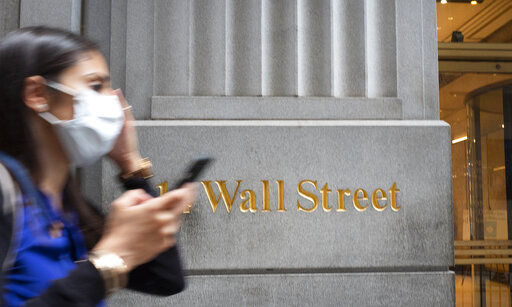Stocks are moving higher on Wall Street in early trading today, edging the S&P 500 closer to the all-time high it hit in February, before the coronavirus pandemic knocked the market into a steep plunge.
The S&P 500 was up 0.2% in the early going, on pace for its eighth straight gain. The latest up move in stocks followed President Donald Trump’s announcement that he was considering cutting taxes on capital gains and income.
Financial, industrial and energy stocks powered the gains. Investors continued to snap up shares in hotels, cruise lines, airlines and banks. Declines in big technology stocks such as Apple and Microsoft kept the gains in check for the second day in a row. Those stocks have far outpaced the rest of the market this year as investors bet they could still thrive in a stay-at-home economy.
European markets were also higher, and Asian markets closed with broad gains. Treasury yields rose, another sign of rising optimism among investors. Oil prices also headed higher.
The Dow Jones Industrial Average was up 292 points, or 1%, to 28,078. The Nasdaq composite slid 0.8%. The Russell 2000 index of small company stocks added 0.8%.
Wall Street continues to notch gains even as the broader U.S. economy continues to struggle. While there have been some positive signs, including a jobs report on Friday that showed a larger-than-expected increase in hiring in July, the economy remains hobbled by high unemployment and an uneven reopening by businesses as the number of new confirmed coronavirus cases has increased in recent weeks. The outlook for an full economic recovery is clouded by worries that the resurgence in infections could force the economy to backtrack.
Unprecedented actions by the Federal Reserve to stabilize markets this spring, including ramped-up bond purchases, have made stocks attractive relative to other assets and given traders enough confidence to keep snapping up stocks.
The S&P 500 has roared almost all the way back from a nearly 34% tumble in March. The benchmark index has nearly reached the record high it set in February, before the pandemic slammed the economy into recession.
Meanwhile, investors continue to keep an eye on Washington for a fresh lifeline for the U.S. economy. Talks between Democrats and Republicans on a new economic relief package appear to have stalled. On Saturday, Trump issued executive orders to extend an expired benefit for unemployed workers, among other things. Critics said the moves did not go far enough to support the economy and questioned how they would work.
Uncertainty has grown with widening antagonisms between the United States and China, the world’s largest economies. The two sides are scheduled to hold virtual trade talks at the end of the week.
In overseas markets, Germany’s DAX jumped 2.4%, while the CAC 40 in Paris gained 2.8%. Britain’s FTSE 100 rose 1.7% even after new data showed employment dropped by the most since the global financial crisis in 2009.
The yield on the 10-year Treasury rose to 0.63% from 0.57% late Monday.
Benchmark U.S. crude oil for September delivery was up 1% to $42.35 per barrel. Brent crude oil for October delivery was up 0.6% to $45.20 per barrel.


